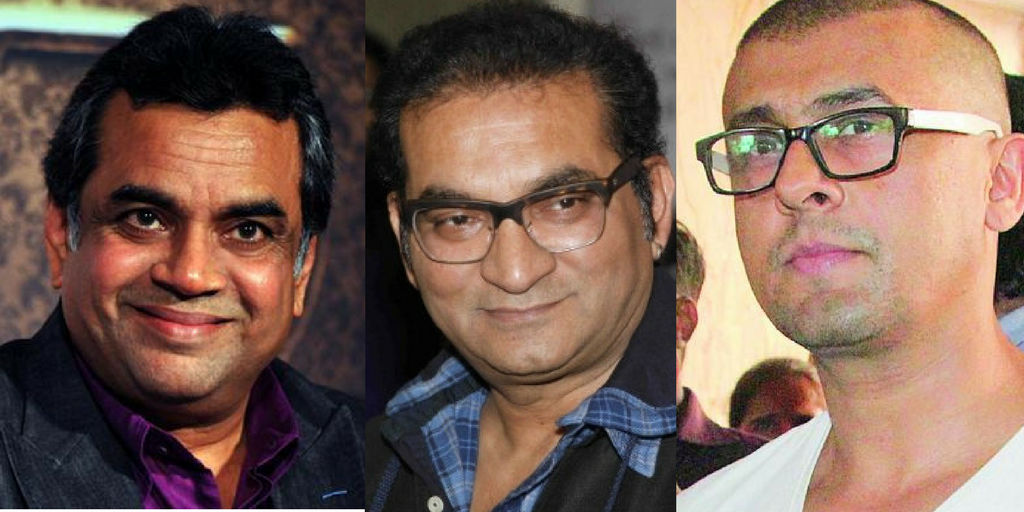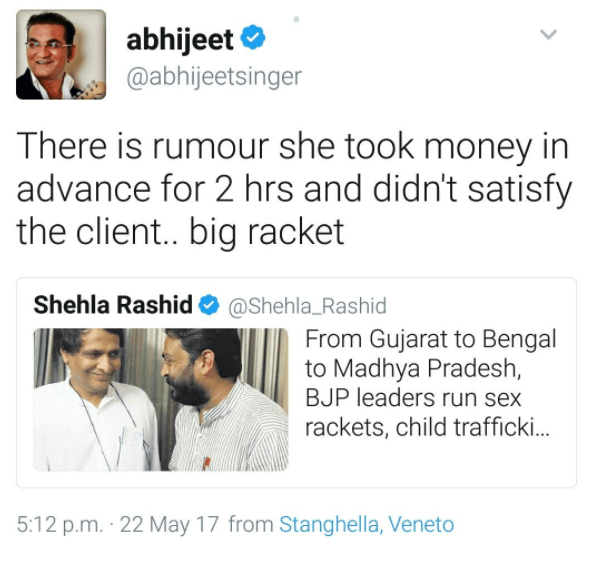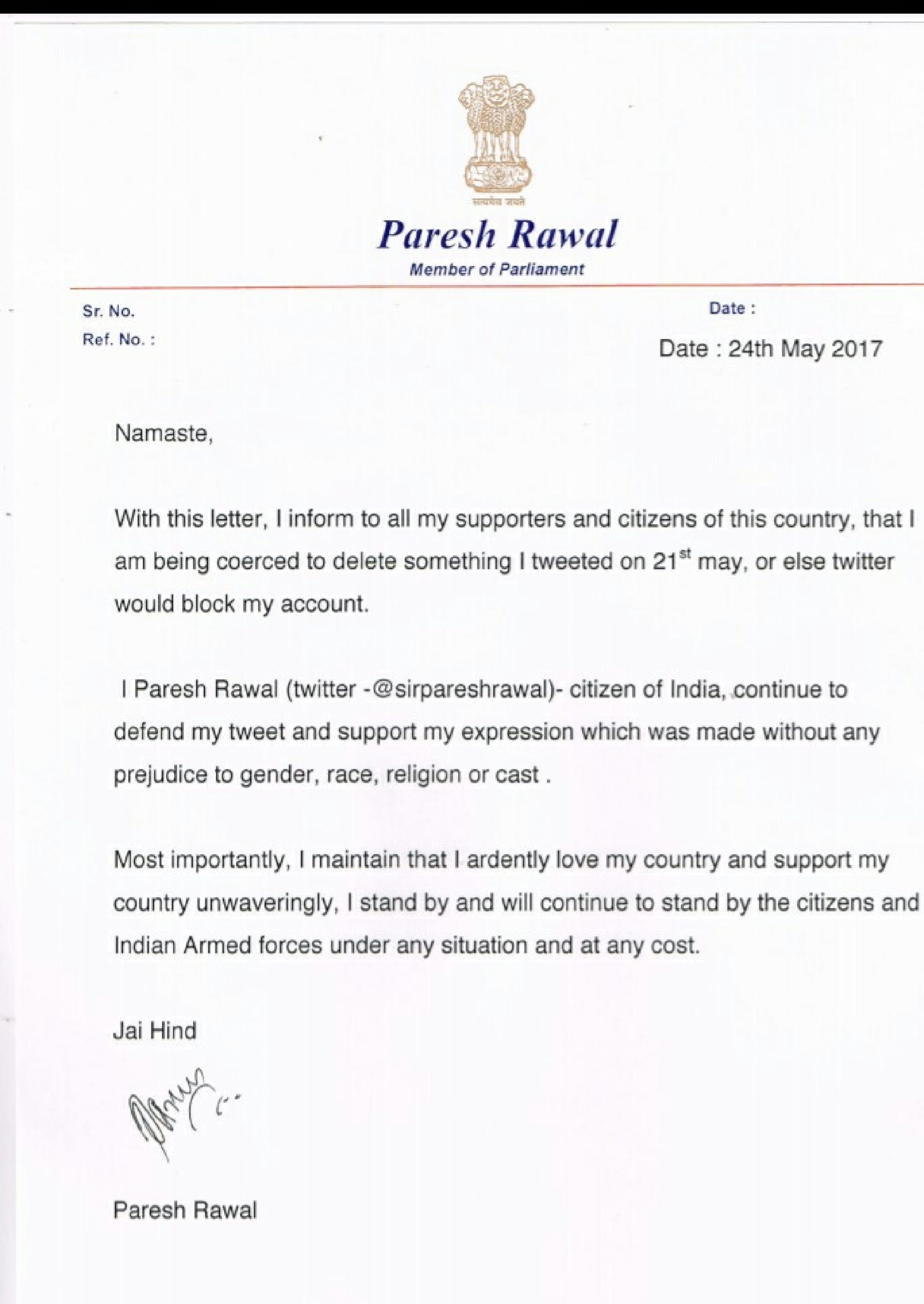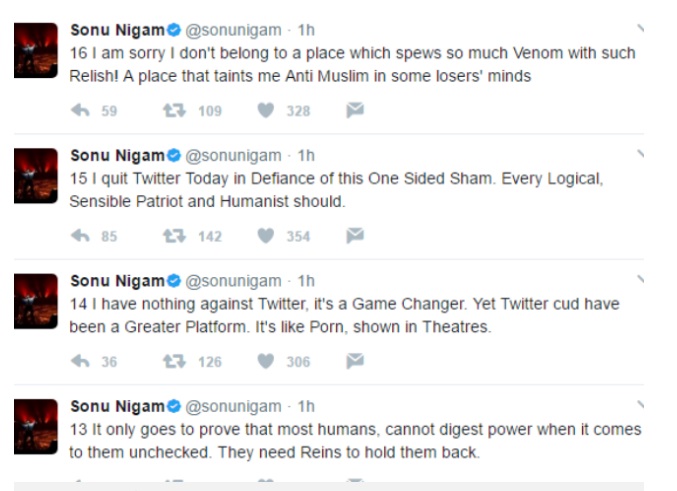
Freedom of Expression on Social Media, particularly on the microblogging website Twitter, has always been a very slippery slope. Twitter has been accused in the past of not taking any action against those who routinely indulge in hate mongering, preach violence and communal rancor or hateful and extremely disturbing and vituperative comments against women.
Former Bollywood playback singer, Abhijeet Bhattacharya, who is known for his hyper-aggressive, foul-mouthed, petty, abusive and uncouth avatar on Twitter got blocked by Twitter — temporarily or permanently is not known yet— and his supporters started the #IstandwithAbhijeet hashtag which was amongst the top 5 trending.
He has built a huge following by being an avid BJP supporter, making sensational comments and trolling and abusing people opposed to his politics. His comment on Shehla Rashid, former JNU student union vice president, was filthy, demeaning, crass, misogynistic and below-the-belt to say the least. Abhijeet called Ms. Rashid a prostitute who takes money in advance but doesn’t satisfy her clients. This disgusting and shameful comment came when she tweeted about a sex scandal in which some BJP regional leaders are embroiled.

What is the profile of people who retweet singer Abhijeet? Let's take a quick look. pic.twitter.com/MatwWNiD4w
— Pratik Sinha (@free_thinker) May 23, 2017
Pure filth @MumbaiPolice he's trying to forment communal riots & abuse rather obvious. Why no action? https://t.co/GqmEM0kwgd
— Swati Chaturvedi (@bainjal) July 2, 2016
This isn’t the first time that Abhijeet has displayed such abhorrent behavior. In the past, he compared footpath dwelling homeless people to dogs and in another incident was arrested for spreading communal hatred when journalist Swati Chaturvedi lodged a police complaint against him. He sobbed and apologized that he will mend his ways, but once out of prison, he forgot everything. He is blaming JNU and anti-India forces now for getting his account blocked.
Meanwhile Paresh Rawal, Bollywood actor-turned BJP parliamentarian, also attracted a lot of flak on Twitter for his loose cannon, outrageous and blatantly undemocratic comment that Arundhati Roy, a renowned author who is known for her staunch anti-India views on Kashmir, should be tied to the bonnet of a jeep in Kashmir and paraded. The tweet is unequivocally condemnable. Howsoever anti-Indian state Arundhati Roy’s views on Kashmir are, she is neither a stakeholder in the conflict nor a militant. After the outrage, Twitter forced Paresh Rawal to delete his tweet.

Paresh Raval later released this statement to clarify why he had to delete his tweet.

And it has come to light that Paresh Rawal’s bile against Ms. Roy was based on a fake news Pakistani propaganda which quoted Arundhati saying that forget 7 lakhs, even 70 lakh Indian soldiers won’t be able to dampen the fervor of Azadi in the valley. The news which circulated was a hoax. Arundhati didn’t make this comment.
Sonu Nigam, who was also subject of heated social media debate barely a month back over his Azaan comments, is quite livid that Abhijeet has been blocked and Paresh Rawal’s tweet deleted. He made 24 successive tweets against what he deems muzzling free speech and bade adieu to his 7 million Twitter followers.


In our opinion, there should be untrammeled Freedom of Speech until there is a clear, imminent and deliberate provocation for violence, rioting or other illegal activities. For hateful and derogatory comments, the person concerned can always block the abuser or take legal recourse under cyber laws related to abuse and harassment, or file defamation suit. Twitter and all other social media websites don’t have to play the cop moderator and filter content (unless of course, it is pornographic material or terrorist propaganda or a call to violence). But there should be a mechanism of temporary account suspension and permanent deletion for habitual and repeated offenders.
Comments
- Advertisement -

